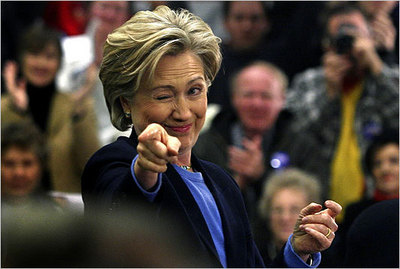Apparently undeterred by criticism from his own party in the wake of Benazir Bhutto’s assassination, Bill Richardson continues his quest to demonstrate that a great resume does not make a great Presidential candidate. He pens an essay for the Boston Globe demanding that the US should suspend all aid to Pakistan until Pervez Musharraf steps down — in favor of “technocrats”:
PRESIDENT PERVEZ MUSHARRAF of Pakistan must go. Rather than waging the “unstinted” war against Al Qaeda that he promised, he has become a source of instability that terrorists are exploiting. Pakistan urgently needs a new government, and the United States should suspend all nonterrorism-related military aid until Musharraf steps aside.
Some in Washington say we should stick with the dictator, because they fear chaos might follow his departure. But the risk of chaos is far greater if Musharraf remains. Only a new government, with broader support than Musharraf has, can restore order to Pakistan and reengage an effective fight against Al Qaeda and the Taliban. ….
Who should replace Musharraf? A temporary government of technocrats, supported externally by a coalition of the main democratic parties, would give Pakistan its best shot at ending the current disorder and holding free and fair elections. The Pakistani Army would continue, as it always has, to strictly safeguard Pakistan’s nuclear weapons. There is a precedent: Pakistan had a technocratic government briefly after General Muhammad Zia ul-Haq died suddenly in the 1980s. With Musharraf gone, the citizens of Pakistan would once again be able to elect their own government. Most important for US national security, they would know that America stood with them, and not with the dictator, in their moment of national crisis.
Richardson wants to impose American will on a country that has made it clear they reject that imposition. Musharraf took power in 1999 because the government of Nawaz Sharif was incompetent and corrupt, just as the government run by Benazir Bhutto was. Those two represented the “main democratic parties” on which Richardson wants to rely now. The third party supports Musharraf, and probably wouldn’t agree to his removal from power in favor of “technocrats” or anyone else.
In truth, Pakistan is a mess. The corruption spreads across the entire body politic there, and no one is clean. Bhutto and Musharraf at least had the virtue of opposing radical Islamist terrorism; Sharif has negotiated with these elements to build his power base. The rest of the parties drift even further in that direction. While Richardson is technically correct in stating that the radical Islamists only ever got 12% in national elections, that’s at least in part because they don’t usually participate in them — and they would provide the same destabilizing elements in a technocracy as they do in the current dictatorship.
The Army keeps the nuclear weapons safe, but only because Musharraf and his selected power structure has the power to do so. The military and the intel services have a serious infiltration problem, and Musharraf has been able to maintain power over those factions. If Musharraf got deposed, the Army would either have to replace him or risk having its command structure overthrown in a mutiny. And if the Army did take over, how would that be an improvement over Musharraf?
Without a doubt, Pakistan remains a serious problem. We will only make it worse if we try a Jimmy Carter-like removal of support for Musharraf and allow the radical Islamist elements to seize power in a coup. Even Chris Dodd realizes the lunacy of the Richardson plan.

